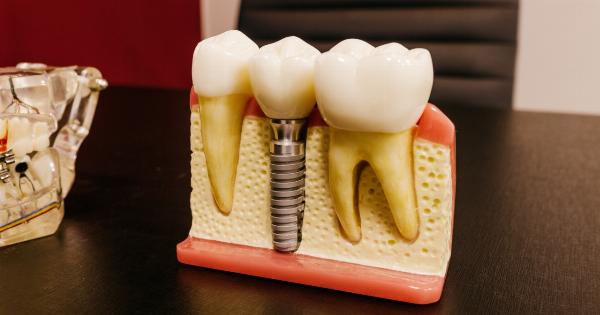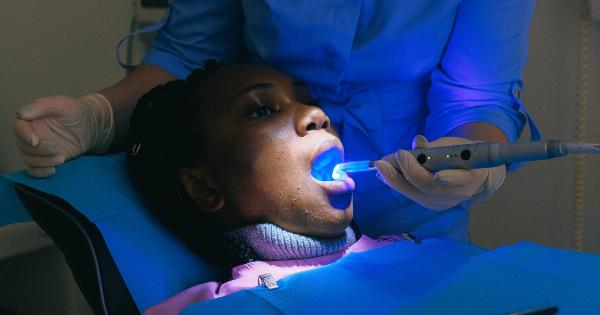Dry mouth, also known as xerostomia, is a condition that occurs when your body is not producing enough saliva.
Saliva plays an important role in keeping your mouth healthy, as it helps to wash away food particles, neutralize acids, and support digestion. Without enough saliva, you may experience discomfort, difficulty speaking, and other oral health problems. In this article, we will explore the causes, symptoms, and treatments for dry mouth.
Causes of Dry Mouth
There are many different factors that can contribute to dry mouth. Some of the most common causes of dry mouth include:.
- Medications: Certain medications, such as antihistamines, decongestants, and antidepressants, can cause dry mouth as a side effect.
- Aging: As we age, our bodies naturally produce less saliva.
- Medical conditions: Several medical conditions, including diabetes, HIV/AIDS, and Parkinson’s disease, can cause dry mouth.
- Radiation therapy: Individuals who undergo radiation therapy for head and neck cancer may experience dry mouth as a result.
- Smoking: Smoking can contribute to dry mouth, as well as other oral health problems.
Symptoms of Dry Mouth
Common symptoms of dry mouth include:.
- A sticky or dry feeling in your mouth
- Frequent thirst
- Burning sensation in your mouth or on your tongue
- Difficulty speaking or swallowing
- Cracked lips or corners of the mouth
- Frequent bad breath
Treatments for Dry Mouth
If you are experiencing dry mouth, there are several treatments that can help to improve your symptoms. Some treatments include:.
- Drinking plenty of water throughout the day to keep your mouth hydrated.
- Avoiding foods and drinks that can contribute to dry mouth, such as alcohol, caffeine, and acidic or sugary foods.
- Using a humidifier at night to add moisture to the air.
- Chewing sugar-free gum or sucking on sugar-free candy to stimulate saliva production.
- Using over-the-counter saliva substitutes or prescription medications to help increase saliva production.
Preventing Dry Mouth
While some causes of dry mouth cannot be prevented, there are several steps you can take to help reduce your risk of developing this condition. Some tips for preventing dry mouth include:.
- Drinking plenty of water throughout the day.
- Avoiding alcohol, caffeine, and sugary or acidic foods and drinks.
- Using a humidifier at night to add moisture to the air.
- Practicing good oral hygiene, including brushing and flossing regularly.
- Visiting your dentist regularly for checkups and cleanings.
When to See a Doctor
If you are experiencing persistent symptoms of dry mouth, such as frequent thirst or difficulty speaking, it may be time to see a doctor or dentist.
They can help to determine the underlying cause of your dry mouth and recommend appropriate treatment options. In some cases, dry mouth can lead to more serious oral health problems, such as tooth decay and gum disease, so it is important to seek treatment if you are experiencing symptoms.
The Bottom Line
Dry mouth is a common condition that can be caused by a variety of factors, including medications, aging, medical conditions, and radiation therapy.
If you are experiencing symptoms of dry mouth, there are several treatments and lifestyle changes that can help to improve your condition. By staying hydrated, maintaining good oral hygiene, and avoiding triggers that can contribute to dry mouth, you can reduce your risk of developing this uncomfortable and potentially serious oral health problem.
























